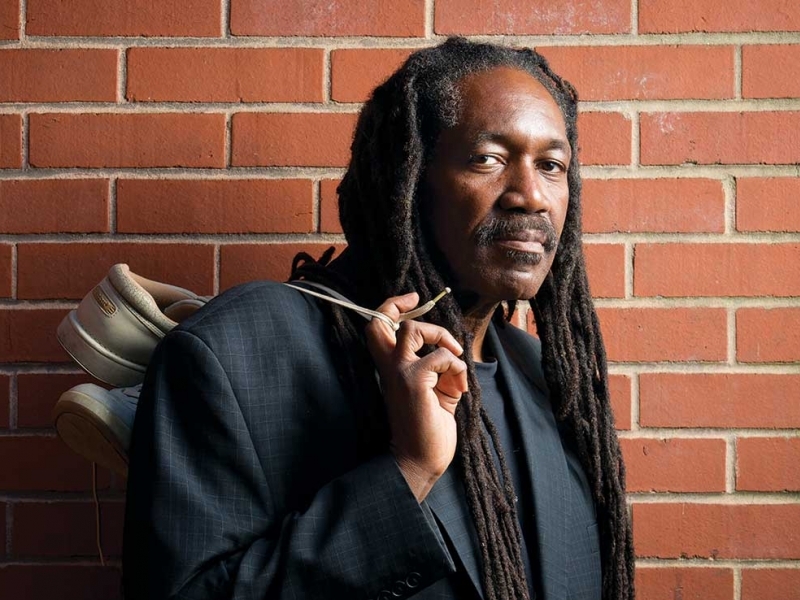Model Citizen
<p>J. Jondhi Harrell<br>Occupation: founder and executive director, Center for Returning Citizens<br>Location: College of Public Health, Class of 2015</p><p> </p>

Each year, millions of people who have been released from prison end up back behind bars. Jondhi Harrell, Class of 2015, knows this story all too well. While incarcerated for 18 years, he watched as fellow prisoners served their time and left, only to return to jail.
After his own release from prison in 2009, Harrell founded the Center for Returning Citizens to address the problem of recidivism. From offering parenting classes to finding housing and jobs, the center helps former inmates start new lives and avoid returning to jail.
In 2013, Harrell was named Goodwill Industries International Graduate of the Year for his achievements through Goodwill’s career program. He is currently working toward a master of social work degree with a concentration in public policy.
What inspired the Center for Returning Citizens?
I started putting this program together while I was still incarcerated. Over the years, I’d watch guys go home and come back to prison because they were unable to adjust to society. Seeing this play out over and over again, I realized the prison system just wasn’t addressing the needs of people inside. So we started an educational program to help young men continue to develop while incarcerated. When I returned home after serving 18 years of a 20-year sentence, I used the same model to develop the center.
What are some of the challenges for people released from prison?
People returning home after being incarcerated have to accept that time moved on without them—families changed, children got older. This is especially true for men who were incarcerated for activities that helped support their families. When they return home they have to develop a new set of habits.
And I think a lot of men and women try to forget everything about prison once they return home. While jail is a traumatic experience, acting as though you were never there makes it easier to make the same mistakes. I keep a pair of loafers from the prison commissary on a shelf in my closet as a reminder of where I came from and what I’ve experienced.
How does the Center for Returning Citizens help?
We currently serve 600 returning citizens, and more are coming to us every day. Counselors meet daily with 15 to 20 people. We start by finding housing, employment and education opportunities, and then we address issues related to relationships, managing money and learning to be social again. We also refer people to services such as veterans benefits.
There are several factors that lead to recidivism; my hope is that we can address a few of them before it’s too late.